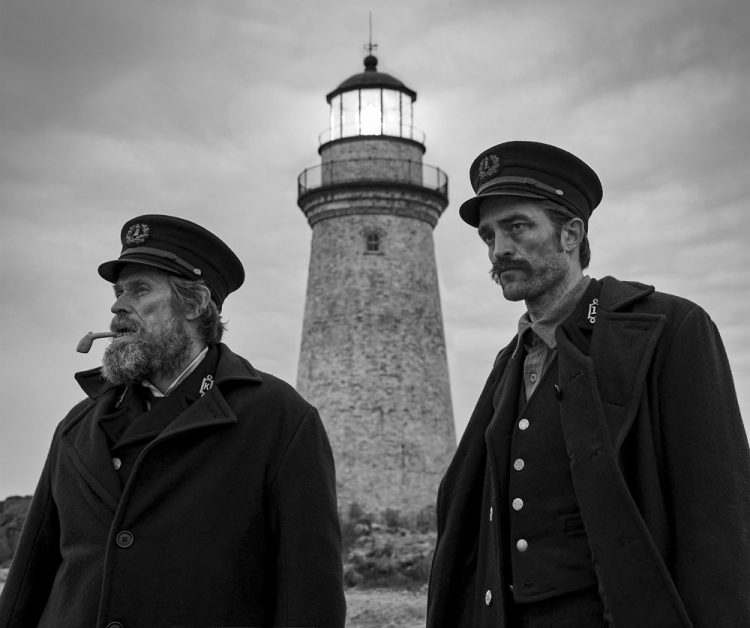Sometimes I have to wonder if the opinions of a local entertainment writer aren’t as powerful as I’d imagined. I know, I’m just as shocked as you are.
Despite the testimony of almost every single filmmaker I’ve ever spoken to (and my own crotchety griping), Maine has once more decided that it doesn’t want to be in the film business. At least that’s the impression given by the legislature’s recent rejection of yet another bill aimed at promoting film production in the state.
LD 1334 (An Act To Promote Economic Development through Increased Film Incentives) was essentially scuppered recently when the Taxation Committee stamped its “ought not to pass” designation on the bill, thus ensuring Maine will continue to be represented onscreen by states and countries with attractive tax incentives – and enough pine trees and imported lobster traps to indifferently stand in for our state.
I’m trying to be fair here – but this is just stupid. Critics cite the questionable long-term economic effects of a major motion picture filming here, while I’d counter that those lawmakers are missing the big picture about what a boost in Maine film production would mean for local businesses and the ever scrappy but perpetually underfunded Maine film industry. Maine businesses (hotels, restaurants, stores and rental agencies, just to name a few) would reap tangible benefits if, say, the next Marvel movie set up shop in the Midcoast. And, hey, wouldn’t it be nice if the next Stephen King adaptation actually got shot in King’s beloved Maine, instead of Newfoundland, South Carolina or a carefully framed California?
But even that’s nothing compared to the turbocharge a major film production or two would mean for Maine movie professionals. Local casting means jobs (and invaluable exposure) for Maine actors, while the hundreds of talented and hungry Maine movie technicians would find opportunities to work their way up. Meanwhile, aspiring Maine filmmakers would see a career in the business as just that much more attainable. And don’t get me started on the tourism that would inevitably result from major film sets (and major film stars). In last week’s column, I noted that I drove a few extra hours on some very narrow roads just to visit the tiny Irish town where “The Quiet Man” was filmed. I think I read somewhere that tourism is sort of important to Maine’s economy.
What’s most enraging about Maine lawmakers turning away this guaranteed movie money and opportunity is how either genuinely or willfully petty it is. Groups like the right-wing lobbying group Americans for Prosperity have long campaigned against film incentives, calling them “Hollywood handouts” with just the right amount of thinly veiled contempt to bait conservatives into sticking it to those darned Hollywood elites. So Maine once again gets no piece whatsoever of that big, juicy Hollywood pie rather than a smaller piece that will actually benefit Maine small businesses and Maine movie folks. Great thinking, there. (Credit to Rep. Amy Roeder, D-Bangor, for being LD 1334’s main sponsor; you tried, at least.)
And while it’s hardly the most devastating setback to Maine’s profile as a filming destination, the failure of this legislation also guarantees that Maine will continue to get the shaft when it comes to meaningful representation on film. Maine’s a potential goldmine for filming location scouts looking for everything from majestic coastlines to majestic mountains to majestic forests for their productions. (Maine’s got majesty, is what I’m saying.)
Instead, Maine will be represented by the hackiest signifiers any time we’re the purported setting for the action. We know we’re more than craggy lighthouses and craggier lighthouse keepers. We also know our economy is more than lobster and paper mills. But Maine’s vibrant, varied and growing culture is perpetually dumbed down whenever a “from away” film production uses us as mere backdrop. You know, for [shudders] “local color.”
Glancing over the list of such Maine-set (but decidedly not Maine-shot) movies is to suggest that the state is essentially peopled by nothing but lonely lighthouse keepers. The original “Pete’s Dragon” has one, caring for an adorably orphaned moppet, while Shirley Temple played the moppet role in 1936’s “Captain January,” being cared for by – you guessed it – a crusty lighthouse keeper.
Jack Lemmon and Doris Day bonded over his shipping company losing her lobsters in 1959’s “It Happened to Jane,” because any story set here has to be tacked to the handful of stereotypes the rest of the world has about Maine. And if 1979 horror film “Prophecy” was laughably silly fun, its story of pollution-spawned mutated bear-monsters once more plucked the easiest Maine signifier to represent us. (Seriously, though, paper mills do spill a lot of terrible stuff into Maine’s waterways. Knock it off.) At least nobody in Hollywood has seemingly heard of whoopie pies or coffee brandy – yet.
It gets lonely banging the drum for something for so long. Especially when the issue is a no-brainer for a state whose film industry stands to benefit immeasurably from something that would be so easy to do. Double-especially when the reasons cited for not doing it are so easily debunked, short-sighted and made in obvious bad faith and ideological pigheadedness. That’s a Maine stereotype long overdue for a change.
Dennis Perkins is a freelance writer who lives in Auburn with his wife and cat.
Send questions/comments to the editors.



Comments are no longer available on this story